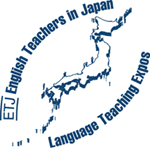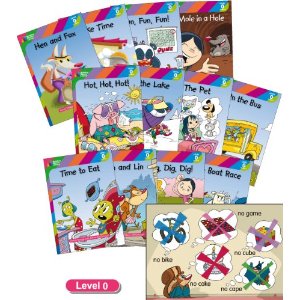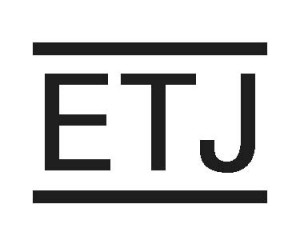conference EFL eikaiwa ETJ Language learning online resources presentations self-study teaching technology
by sendaiben
4 comments
Tokyo ETJ Expo (Sunday November 4)
I’ll be presenting this Sunday morning at the ETJ Expo in Kanda, Tokyo from 10am, talking about online resources for studying English:
________________________________________________________
SRS, RSS, LMS: online tools to boost language learner efficiency
The internet has already revolutionized language learning, giving learners access to resources that would have been inconceivable even five years ago. In this presentation Ben Shearon will introduce free online resources with the potential to transform English language learners’ self-study. Suitable for all levels and ages.
________________________________________________________
Come along to the presentation, or catch me at any point during the day.
Building Blocks Library curriculum EFL eikaiwa ES extensive reading junior high school kids Language learning materials phonics readers Reading Review reviews teaching
by sendaiben
5 comments
Review of MPI’s Building Blocks Library
Full disclosure: I was asked to write some additional readers for this series last year, and they just came out. I’ll try not to be too gushy in this review.
The Building Blocks Library, published by Matsuka Phonics Institute, is a ten level series with 82 titles. The first four levels are written as phonics readers to help students start reading, the ones after that are leveled readers for extensive reading.
The good:
- The same characters appear in many of the books, developing throughout the levels
- Ten levels means that students can move up through the series gradually and read at their level
- The artwork and production values are high and the books are attractive
- Each level comes with a CD of the books read aloud: the CD is well made and the voice acting is good
- Most of the books are interesting with varied story lines
- The series is reasonably priced, especially considering they come with CDs
The bad:
- There are not enough books at each level to meet student needs (this has been partially addressed with the new Level 0 and Level 1A sets, but schools will still need to supplement this with other materials)
- The difficulty outstrips the content at the higher levels, ie they are difficult for ordinary junior high school students to read even though the stories probably appeal to students that age the most
Overall:
This is a very nicely produced series that appeals to students and is economical and easy to integrate for schools. The main drawback is that there are not enough books at each level to allow students to move up the levels smoothly -ideally students would be doing much more reading at each level before moving up so teachers will have to supplement this with other materials.
conference EFL eikaiwa ETJ Language learning online resources presentations self-study Uncategorized
by sendaiben
leave a comment
ETJ Expos 2012
I’m very happy to announce I will be presenting at four of the ETJ Expos this year:
- Tokyo (Sunday, Nov 4)
- Nagoya (Sunday, Nov 25)
- Sendai (Sunday, Dec 2)
- Fukuoka (Sunday, Dec 9)
My presentation is sponsored by Oxford University Press, and I’ll be talking about free online resources to help students study independently.
_____________________________________________________
SRS, RSS, LMS: online tools to boost language learner efficiency
The internet has already revolutionized language learning, giving learners access to resources that would have been inconceivable even five years ago. In this presentation Ben Shearon will introduce free online resources with the potential to transform English language learners’ self-study. Suitable for all levels and ages.
_____________________________________________________
Other than the presentation, I’ll be catching as many presentations as possible and hope to meet and talk to a lot of people. Hope to see you there!
conference curriculum EFL expectations extensive reading language courses Language learning presentations teaching university video
by sendaiben
2 comments
Extensive Reading presentation in Japanese
This presentation is from the ER Seminar held in Nagoya on July 1st, 2012. It is a short (25 minute) presentation in Japanese about how to design and introduce an extensive reading program.
eikaiwa iPhone kids Language learning materials online resources personal Review school management technology
by sendaiben
2 comments
Nexus 7 Tablet Review
The Nexus 7 tablet by Google and Asus was finally released in Japan last month. I am a huge Google fan and am looking for alternatives to the iPad for the classroom. It was too good an excuse, so I went ahead and ordered one.
My wife has an iPad 2, and I will be comparing the Nexus 7 to that, as well as to my iPhone 4S. This is my first Android device.
In brief: it’s great. I really like the 7″ form factor. It feels much lighter and easier to hold than the iPad, and at just under 20,000 yen, it is less than half the price of the new retina iPad.
The good:
- size and weight are much more user-friendly than the iPad
- screen is good with internet, ebooks, and movies
- Android OS is fast and fairly intuitive
- 2000 yen credit for the Google Play Store
- One movie and three books included
- Lots of Japanese content on the Play store, including ebooks
- E-reader includes an easy to use J-E/E-J dictionary
- Skype is really easy to use
- Not as many apps as iOS
- No Flash support! This is huge, as most of the websites I want students to use with this (WordEngine, Starfall) are flash-based
- Not as intuitive as iOS in terms of navigation, etc.
Overall:
I love this tablet. For reading ebooks, watching movies, carrying around with me, reading PDFs, accessing the Google online world (gmail, reader, drive, etc.) it is wonderful. I’m really glad I got it, and it will supplement my iPhone 4S for most of these tasks.
However, unless I can get around the lack of Flash support (there seem to be workarounds for it, but they are not official and involve some risks) we won’t be buying these for students to use in class. It’s a shame, as the smaller and lighter form factor would make them easier to use for children than iPads.
Basically, if you use Google sites like gmail, drive, and reader, if you read ebooks and need a tablet to take movies and music on the road with you, this could be ideal. As a classroom tool it is crippled by the lack of Flash support.
Anyone else tried the Nexus 7?



